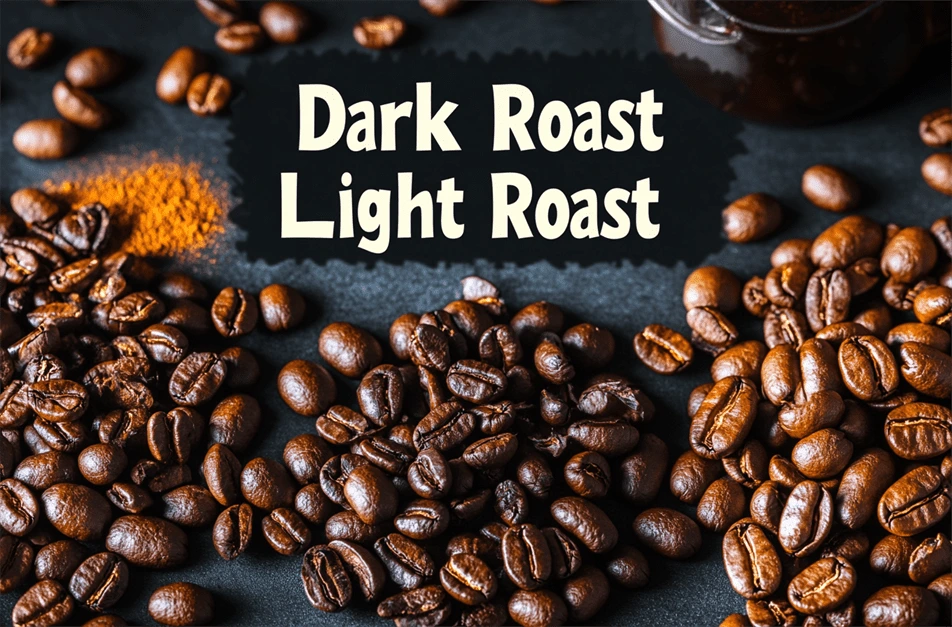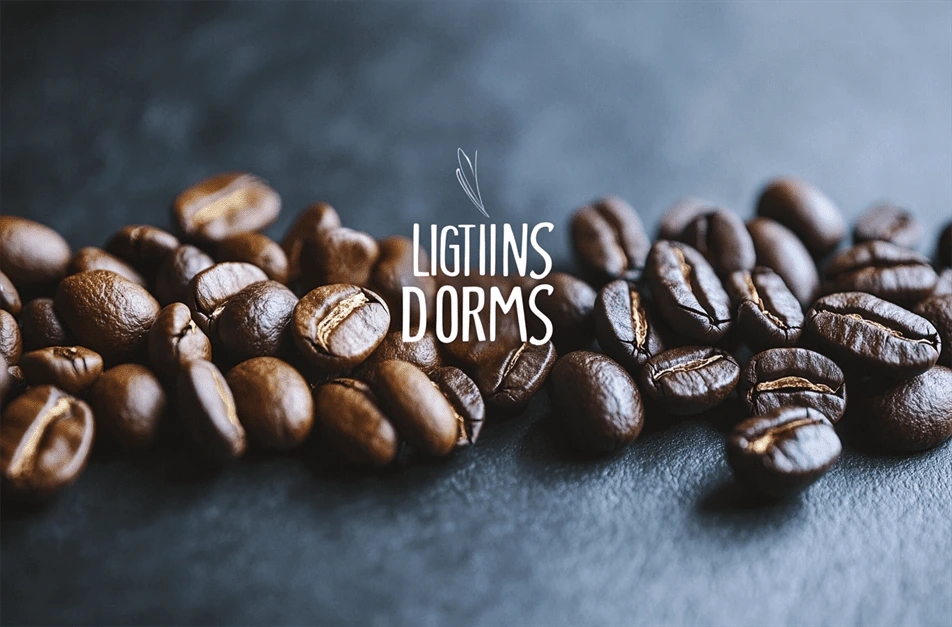The Science Behind Coffee Roasts: Light vs Medium vs Dark 🔬☕
Table of Contents
🌅 Introduction: Why Roast Matters
When it comes to coffee, the roast level plays a crucial role in shaping its flavor and character. Whether you’re a fan of bright and fruity notes or deep and bold flavors, the roast determines much of what ends up in your cup. But what exactly happens to coffee beans during roasting? And how does that impact flavor, acidity, body, and caffeine?
Let’s break down the science of light, medium, and dark roasts so you can choose the perfect brew every time! 🔥🧪
🔥 What Is Coffee Roasting?

Roasting is the process of transforming green coffee beans into the aromatic brown beans we grind and brew. This involves:
- Maillard Reaction: Sugars + amino acids = flavor compounds 🍞
- Caramelization: Breaks down sugars for sweetness
- First Crack: Water turns to steam, bean expands (light roast)
- Second Crack: Cellular walls rupture, oils emerge (dark roast)
Every second in the roaster matters! ⚠️ Different roast levels unlock different chemical reactions, dramatically altering the taste, smell, and strength of your coffee.
☕ Roast Levels at a Glance
Here’s a quick look at the core differences between roast levels:
| Roast Level | Color | Flavor Notes | Acidity | Body | Caffeine |
|---|---|---|---|---|---|
| Light | Light brown | Fruity, floral, tea-like | High | Light | Slightly more ☕ |
| Medium | Medium brown | Balanced, chocolatey | Medium | Medium | Moderate ☕ |
| Dark | Dark brown | Smoky, bitter, bold | Low | Heavy | Slightly less ☕ |
📝 Note: Caffeine differences are minimal but noticeable to sensitive drinkers.
🌞 Light Roast: Bright, Fruity, and Vibrant
Characteristics:
- Roasted to 356°F – 401°F (180°C – 205°C)
- Stops at first crack
- Retains most of the bean’s original character
Flavor Profile:
🍋 Citrus, berry, floral, tea-like
🌾 Tastes closer to the origin (terroir)
Best Brewing Methods:
✅ Pour-over
✅ AeroPress
✅ Cold brew (for a unique twist)
📢 Perfect for single-origin beans that highlight delicate flavors and showcase their unique origin!
🌤️ Medium Roast: Balanced and Versatile
Characteristics:
- Roasted to 410°F – 428°F (210°C – 220°C)
- Just after first crack, before second crack
Flavor Profile:
🍫 Chocolate, nuts, caramel
🍎 Slight fruitiness balanced by richer tones
Best Brewing Methods:
✅ Drip coffee
✅ French press
✅ Espresso (for balanced shots)
🎯 This is your classic American-style roast—smooth, balanced, and super versatile!
🌑 Dark Roast: Bold, Intense, and Smoky
Characteristics:
- Roasted to 437°F – 482°F (225°C – 250°C)
- Past second crack
- Surface oils appear 🌒
Flavor Profile:
🔥 Bitter chocolate, smoke, earth, toast
🍷 Less acidity, more bitterness
Best Brewing Methods:
✅ Espresso
✅ Moka pot
✅ French press
🥵 Popular with traditional espresso blends and strong coffee lovers who like rich, punchy brews.
🧠 Myth Busting: Caffeine & Roast Levels
A common misconception is that “dark roast contains more caffeine simply because it tastes bolder.” ❌
Truth:
👉 Light roasts often have slightly more caffeine by volume, because the beans are denser and retain more of their original mass.
👉 Dark roasts lose mass through longer roasting but may take up more space in your scoop—so it all depends how you measure (by weight or volume).
🔬 The Chemistry of Roasting
Let’s look at the scientific changes that occur across roast levels:
| Roast Level | Maillard Reaction | Caramelization | Oil Visibility | Acidity |
|---|---|---|---|---|
| Light | Minimal | Low | None | High |
| Medium | Moderate | Moderate | Rare | Medium |
| Dark | Intense | High | Visible | Low |
🧪 The longer the roast, the more sugars are broken down, acidity is reduced, and bitter notes emerge.
☕ Matching Roasts with Preferences
Here’s how to choose your roast based on what you enjoy:
| If You Like… | Choose… |
|---|---|
| Bright, fruity, floral notes | Light roast |
| Balanced, chocolatey comfort | Medium roast |
| Strong, smoky, bold flavors | Dark roast |
🎨 It’s not just taste—it’s a preference of personality. Light roast fans often enjoy nuance and complexity. Dark roast lovers want intensity and richness. Medium? The crowd-pleaser.
💡 How to Identify Roast on the Bag
✅ Visual cues: Light brown means light roast, while almost black signals a dark roast.
✅ Roaster notes: Look for flavor descriptions like “citrus” (light), “nutty” (medium), “smoky” (dark)
✅ Roast date: Always go for freshly roasted beans!
💬 Tip: Specialty roasters often share exact roast temperatures and curves—a bonus for geeks like us!
📌 Conclusion: Roasting Reveals Coffee’s Soul ✨
Coffee roasting is more than heat and time—it’s alchemy in action. Whether you prefer a citrusy pour-over or a deep, smoky espresso, the roast unlocks entirely new experiences from the same humble bean.
Now that you know the science behind the roast, your coffee ritual will never be the same again. Go ahead—taste your coffee with a new perspective! ☕🔍

